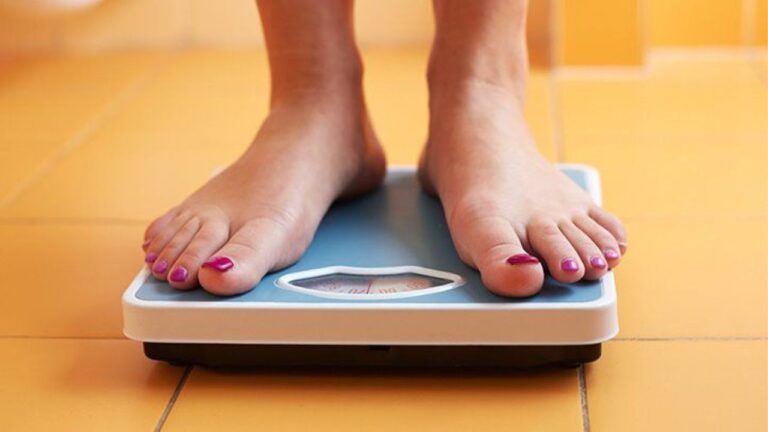Periods our monthly visitor. Not only does it bring with it an entourage of PMS symptoms like moodiness and cramps, but many women also grapple with the unnerving weight gain. While the numbers may hike by 2-3 kg during those days, it’s essential to remember that most of this is temporary. Blame it on fluctuating hormones like progesterone and estrogen, which play a significant role in water retention, bloating, and even amplified appetite. Despite the natural processes at play, there are effective strategies to help you manage, or even dodge, that extra weight. Let’s delve into some:
Stay Hydrated: It might sound counterintuitive, but drinking ample water can combat water retention and help with bloating.
Mindful Eating: Opt for balanced meals packed with whole grains, lean proteins, and plenty of veggies. Resist the urge to overeat due to heightened appetite.
Reduce Salt Intake: Craving crisps? Try to minimise salty foods which can exacerbate water retention.
Embrace Gentle Exercise: Even if a full-blown gym session feels too much, a gentle walk or yoga can work wonders during this time.
Limit Caffeine and Sugar: While that sugary latte might seem tempting, it can lead to further bloating and mood swings. Opt for herbal teas instead.
Manage Stress: Stress can lead to overeating. Engage in relaxation techniques like meditation or deep-breathing exercises.
Get Adequate Sleep: Ensure you’re clocking in 7-9 hours of sleep. It’ll help regulate appetite and mood.
Stay Away from Gas-Inducing Foods: Foods like beans, broccoli, and carbonated drinks can cause bloating. Limit them during your period.
Keep Track: Maintain a food diary or use a tracking app. It helps to be conscious of what you’re consuming.
Causes of Weight Fluctuations:
PCOS: Polycystic Ovary Syndrome can wreak havoc on one’s metabolism due to its hormonal imbalances, often leading to additional weight during menstruation.
PMS: The notorious Premenstrual Syndrome comes with its suite of symptoms, notably, bloating and a heightened appetite for carbs. Succumbing to these cravings can result in added weight.
Fluid Retention: Changes in hormone levels, especially estrogen and progesterone, can disrupt sodium balance, causing bloating and increased fluid retention.
Boosted Appetite and Cravings: The hormone progesterone can rev up appetite during menstruation, leading to potential overeating and subsequent weight gain.
Bloating: A combination of reduced fiber intake, inadequate water consumption, and hormonal changes can lead to that bloated feeling, making the belly appear larger.
Constipation: Menstruation can affect bowel movement regularity. Infrequent bowel movements can increase the sensation of bloating and add to weight.
Coping with Weight Fluctuations:
Opt for Potassium-Rich Foods: Bananas, kiwi, and oranges can help combat bloating by balancing bodily fluids.
Incorporate Protein: Avoid junk food temptations by including proteins like nuts, beans, and salmon. These can reduce bloating-inducing prostaglandins.
Hydrate with Water-Rich Foods: Consume natural diuretics like cucumber and watermelon to feel light and ward off bloating.
Limit Gas-Causing Foods: Steer clear of broccoli, cabbage, and excessive dairy to prevent stomach distention.
Moderate Caffeine and Alcohol: These can irritate the digestive system; best to limit their intake during menstruation.
Avoid Sugary Drinks: These can add unnecessary calories and exacerbate bloating. Stay clear of sodas and packaged juices.
Stay Hydrated: Counterintuitive as it sounds, more water can actually help flush out excess fluids and alleviate bloating.
Adopt a Balanced Diet: Consistent healthy eating, not just during menstruation, can aid weight management. Apps like Rati Beauty offer guided diet plans.
Maintain Physical Activity: While you might not feel up for an intense workout, gentle exercises like yoga or walking can help.
In conclusion, menstruation is a natural process, and a little weight fluctuation is perfectly normal. However, adopting healthy habits can help manage these changes more effectively. Always remember: it’s not about the number on the scale, but how you feel in your body. Embrace the journey and take good care of yourself.
























+ There are no comments
Add yours